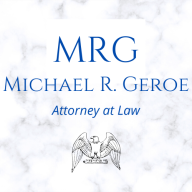by Michael R. Geroe
You can protect the name of your business by designating it as trademarked when you use it in commerce. Setting the name apart by using all caps, italics, a larger font size than surrounding text, and expressly asserting trademark ownership in the name of your business will all be effective in putting the public on notice that the name is a mark owned by your business. For example, a blog post, web page or print ad stating something along the lines of this at the top of the creative: “Buy the best widgets from the ACME Discount Store – see our promotions at http://www.acme.biz” followed by a statement along the lines of this at the bottom: “ACME is a trademark of Acme Discount Store, Inc.”
It is also customary and recommended to use the abbreviation “TM” – standing for “trade mark” – in superscript following the mark itself. For example, a statement such as: “Buy the best widgets from the ACME™ Discount Store – see our promotions at www.acme.biz”, is an even better practice. It should still be followed by the statement of ownership, identifying the owner of the mark (e.g., Acme Discount Store, Inc.).
Keeping a date-stamped record of when you first started using the mark will also be invaluable in the event of controversy over the mark. If you find another business using the same mark or someone accuses you of using their mark, the date of first use will become a very important issue.
These practices, of putting the public on notice of your ownership of the mark while using it in commerce, and keeping good records, require only planning and maintaining prudent habits. State and local law in the US will offer you protection in the event the ownership of your mark is challenged.
The best level of protection in the ownership of your mark, however, comes with registering your mark with the US government. The U.S. Trademark Office, which is part of the U.S. Patent and Trademark Office, maintains a registry of trademarks. Anyone can apply to have their mark registered with the federal government. The process can take close to a year and sometimes longer, as a Trademark Examiner will review the application and may reject it in whole or in part, for many different reasons. Perhaps the mark is already owned by someone else; or the mark may be confusingly similar to another mark which is already registered. Or someone else may have reserved the mark, even if they are not yet using it in commerce. Or the description(s) in your application of what the mark covers may have one or more defects to which the Trademark Examiner objects. Often, these objections can be overcome through modifying the application or making changes to the mark.
In preparing your trademark application, consider the relevant class(es) in which you want your mark protected. Federally registered trademarks are protected in one or more of 45 international classes of goods and services recognized by the U.S. Trademark Office, arising from the International Classification of Goods and Services of the 1957 Nice Agreement. A trademark attorney can help you prepare and prosecute your application, to increase the chances of having the mark registered with the U.S. Trademark Office.
Once the mark is successfully registered, you will have a date of registration along with a trademark registration number. In the event of future controversy over the mark, the registration will be dispositive on key questions such as the date of first use of the mark, and how the mark has been used in commerce. If you are in court over ownership of a mark and need to establish, beyond a reasonable doubt, the date of your first use of the mark, prior registration of the mark with the U.S. Trademark Office simply takes this issue off the table; alternatively, you can undergo discovery, including the subpoena of documents, deposition of witnesses, and filing of motions and pleadings with a court, to try to establish the same facts.
If you would like advice about how to protect the name of your business or other important marks you use in business, please contact me for more information.


